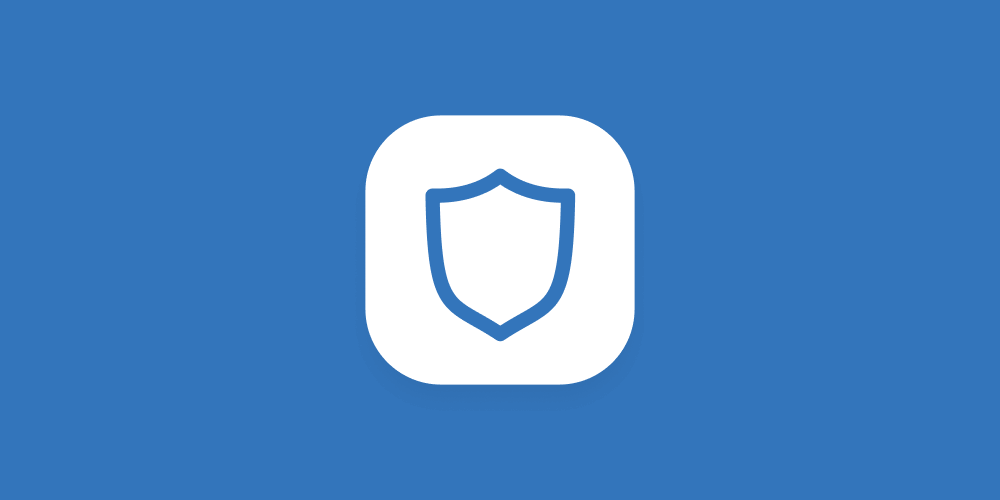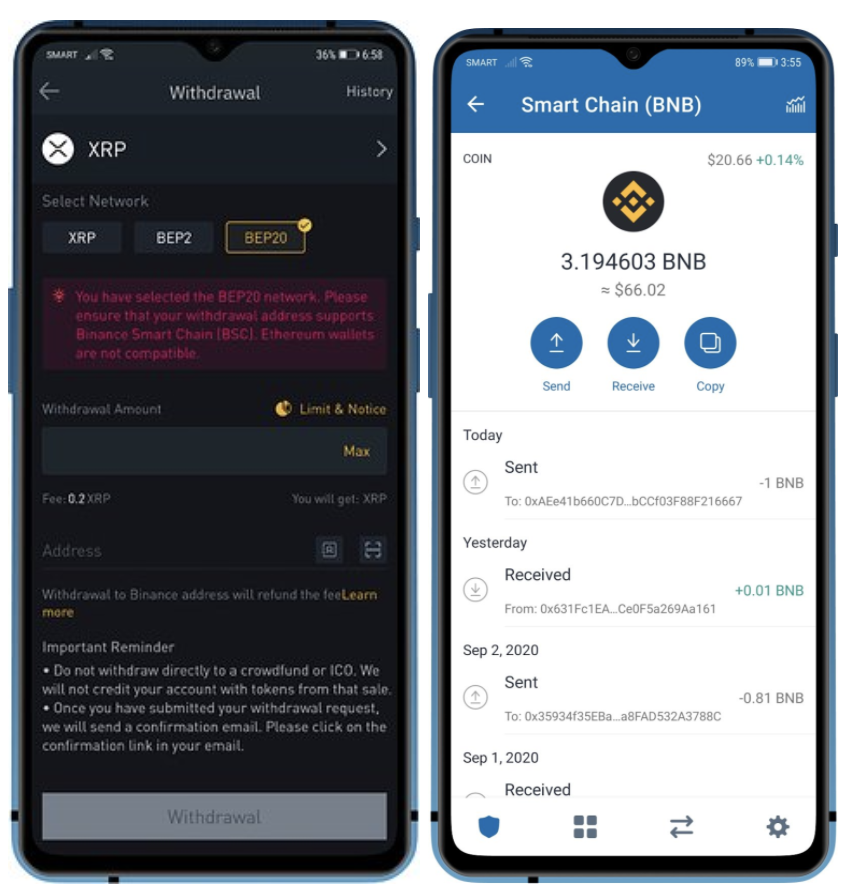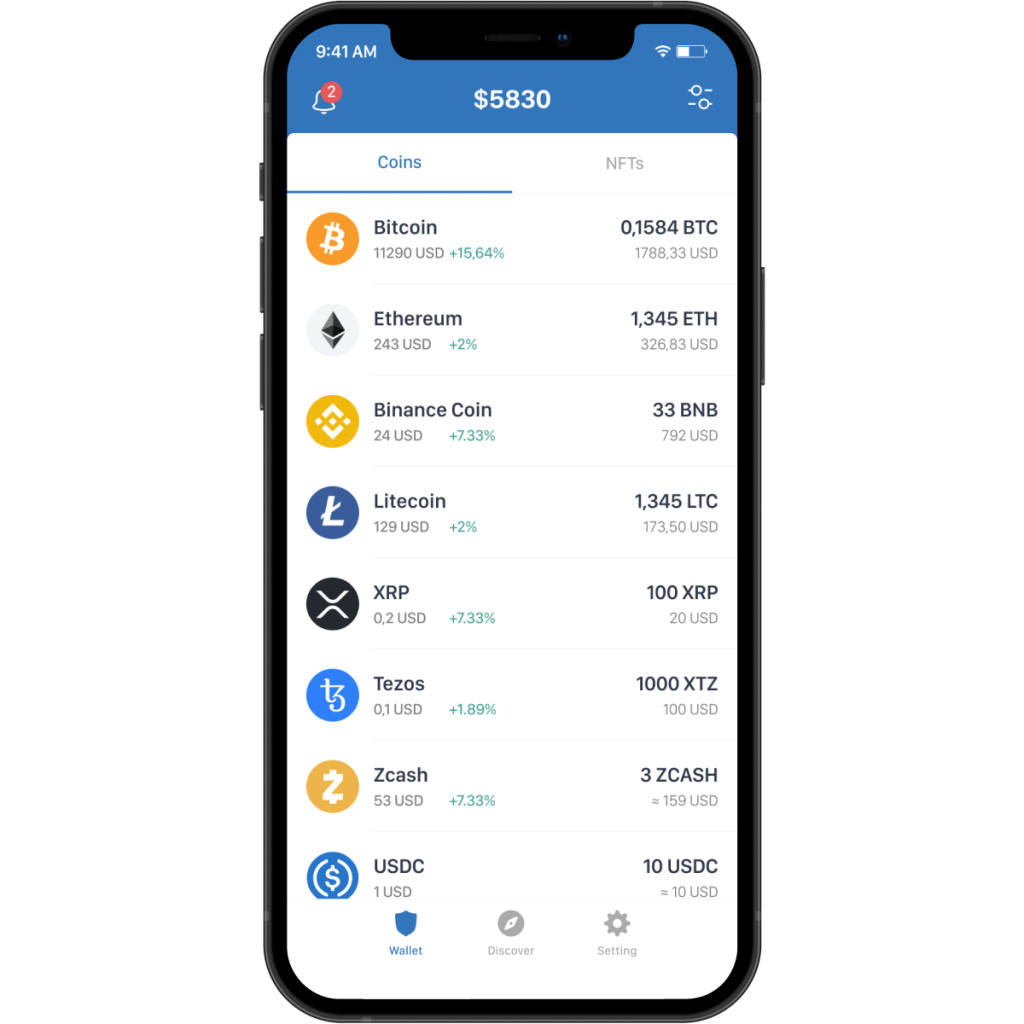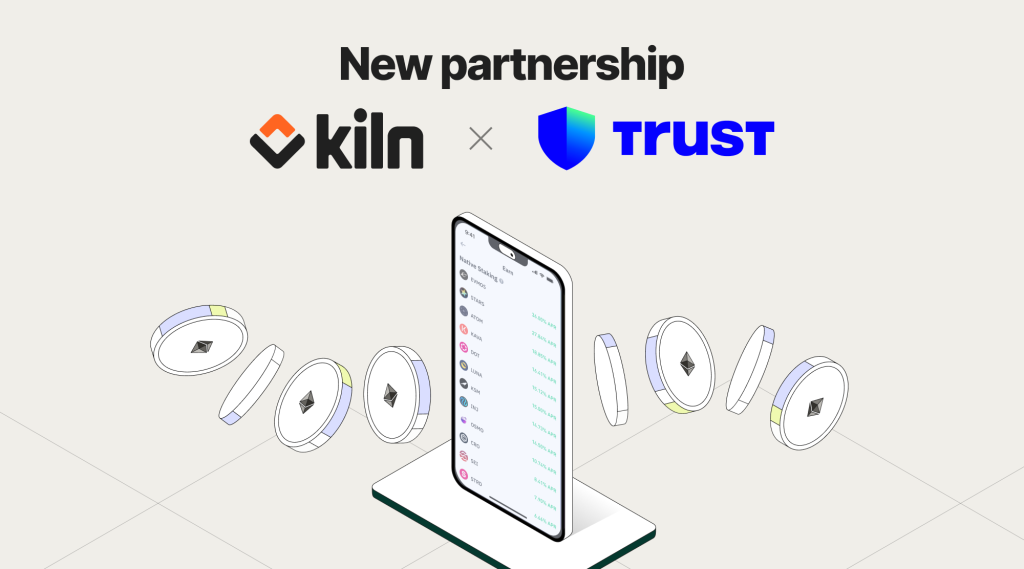
The best crypto wallet app depends on your needs, but Trust Wallet is highly regarded for its security, multi-currency support, and user-friendliness.
Key Features to Look for in a Crypto Wallet
What Security Features Should a Crypto Wallet Have?
-
Private Key Control: Ensure you have full control over your private keys, securing your assets.
-
Encryption: Strong encryption protects private keys and data stored on your device.
-
Backup and Recovery: A 12-word recovery phrase helps restore your wallet if lost.
-
Two-Factor Authentication (2FA): Adds an extra layer of security for wallet access.
-
Biometric Protection: Fingerprint or face recognition provides secure and easy access.
How Does User Interface Impact a Crypto Wallet’s Effectiveness?
-
Ease of Use: A simple, intuitive design makes managing assets and transactions easy, especially for beginners.
-
Clear Transaction Management: An organized interface helps users track balances and transaction history without confusion.
-
Multi-Asset Support: Easily manage various cryptocurrencies in one wallet.
-
Responsive Design: Fast, smooth interactions ensure quick access and transaction completion.
-
Support for DeFi and NFTs: Easy access to decentralized finance and NFT management.

Comparing Trust Wallet with Other Crypto Wallets
What Makes Trust Wallet Stand Out from Competitors?
-
Non-Custodial: Trust Wallet is a non-custodial wallet, meaning users have full control over their private keys and assets, unlike custodial wallets where a third party controls your funds.
-
Multi-Currency Support: Trust Wallet supports over 1 million cryptocurrencies and tokens, including popular and lesser-known assets, across various blockchains such as Ethereum, Binance Smart Chain, and more.
-
DeFi and DApp Integration: Trust Wallet has built-in support for decentralized finance (DeFi) platforms and decentralized applications (DApps), allowing users to interact with DeFi protocols and swap tokens without leaving the app.
-
NFT Management: Trust Wallet allows users to store, view, and manage NFTs (Non-Fungible Tokens) in addition to traditional cryptocurrencies, offering a complete solution for digital asset management.
-
User-Friendliness: With its simple, intuitive design, Trust Wallet makes it easy for both beginners and advanced users to manage their crypto assets and interact with blockchain networks.
How Does Trust Wallet Compare to Coinbase Wallet and MetaMask?
-
Trust Wallet vs. Coinbase Wallet:
-
Custodial vs. Non-Custodial: Coinbase Wallet is a non-custodial wallet, like Trust Wallet, but Coinbase also operates a centralized exchange, where users can store funds. Trust Wallet does not have any associated exchange, focusing purely on wallet functions.
-
Asset Support: Trust Wallet offers more flexibility with multi-chain support and over 1 million assets, while Coinbase Wallet primarily focuses on Ethereum-based tokens and certain other popular assets.
-
DeFi and DApps: Trust Wallet has integrated access to a wider range of DeFi platforms and DApps, while Coinbase Wallet has more limited access to decentralized applications.
-
-
Trust Wallet vs. MetaMask:
-
Multi-Chain Support: MetaMask is primarily focused on the Ethereum blockchain and its tokens, while Trust Wallet supports a broader range of blockchains, including Binance Smart Chain and others.
-
NFTs and DeFi: Trust Wallet offers better support for NFTs and a wider variety of DeFi protocols compared to MetaMask, which is more limited in these areas.
-
User Interface: Trust Wallet provides a more beginner-friendly interface, while MetaMask is known for being more advanced and developer-focused.
-

Choosing Between Hot Wallets and Cold Wallets
What is the Difference Between Hot and Cold Wallets?
-
Hot Wallets: Hot wallets are connected to the internet, making them more accessible for quick transactions. They are typically used for everyday trading and spending, allowing users to easily access their funds through apps or web-based platforms.
-
Cold Wallets: Cold wallets are offline storage solutions, such as hardware wallets or paper wallets. They provide enhanced security by being disconnected from the internet, reducing the risk of hacks or online threats. Cold wallets are ideal for long-term storage of large amounts of cryptocurrency.
When Should You Use a Hot Wallet or Cold Wallet?
-
Hot Wallet:
-
Frequent Transactions: Use a hot wallet when you need to make regular transactions, trade frequently, or interact with decentralized applications (DApps) or decentralized finance (DeFi) platforms.
-
Ease of Access: Hot wallets are suitable when you require quick and easy access to your assets, but they come with a higher risk due to their constant connection to the internet.
-
-
Cold Wallet:
-
Long-Term Storage: Cold wallets are best for long-term storage of large amounts of cryptocurrency or assets that you don’t need to access frequently.
-
Enhanced Security: If security is a priority, especially for significant holdings, cold wallets offer the highest level of protection by being offline and immune to online hacking attempts.
-
How to Secure Your Crypto Wallet from Hackers
What Security Measures Should Be Taken to Protect Your Wallet?
-
Use Strong Passwords: Always set a strong, unique password for your wallet to prevent unauthorized access. Avoid using easily guessable passwords.
-
Enable Two-Factor Authentication (2FA): Enable 2FA for any services connected to your wallet, such as exchanges or DeFi platforms, to add an extra layer of security.
-
Backup Your Wallet: Securely back up your wallet’s recovery phrase and store it offline in a safe place, ensuring you can recover your funds in case your device is compromised.
-
Beware of Phishing Attacks: Always double-check URLs and avoid clicking on suspicious links or downloading files from untrusted sources to avoid phishing attacks.
-
Regular Updates: Keep your wallet app and device software updated to ensure that any security vulnerabilities are patched promptly.
How Does Trust Wallet Ensure Protection Against Cyber Threats?
-
Private Key Control: Trust Wallet is non-custodial, meaning only you have control over your private keys, reducing the risk of third-party exposure.
-
Encryption: Trust Wallet encrypts your private keys and sensitive data locally on your device, making it difficult for hackers to access your assets.
-
Biometric and PIN Protection: Trust Wallet allows users to secure their wallet with biometric authentication (fingerprint or facial recognition) and a PIN code, adding extra layers of protection.
-
Decentralized and Open-Source: As a decentralized wallet, Trust Wallet does not rely on centralized servers, reducing the attack surface. Its open-source nature also allows for continuous security audits by the community.

Is Trust Wallet Suitable for Beginners?
How Easy is Trust Wallet to Use for New Crypto Users?
-
Simple and Intuitive Interface: Trust Wallet is designed with ease of use in mind, making it simple for beginners to store, send, and receive cryptocurrencies. The interface is clean and user-friendly, ensuring new users can quickly navigate and manage their assets.
-
Step-by-Step Guidance: Trust Wallet offers a straightforward setup process, and users are guided through each step, from creating a wallet to adding cryptocurrencies.
-
Multi-Asset Support: Users can easily store various cryptocurrencies and tokens, and the wallet automatically detects supported assets, reducing the need for manual configurations.
Does Trust Wallet Provide Support for Learning and Education?
-
In-App Tutorials: Trust Wallet provides helpful in-app tutorials to assist new users in understanding how to use the wallet effectively and safely.
-
Knowledge Base: Trust Wallet’s official website offers a comprehensive knowledge base and frequently asked questions (FAQ) section, helping users troubleshoot issues and understand key wallet features.
-
External Resources: While Trust Wallet itself doesn’t directly offer courses, many crypto communities, forums, and blogs provide educational content about Trust Wallet, helping users learn more about crypto management.

The Cost of Using a Crypto Wallet App
Are There Any Fees for Using Crypto Wallets Like Trust Wallet?
-
No Wallet Fees: Trust Wallet is free to download and use. There are no fees for storing or managing your cryptocurrencies within the wallet itself.
-
Network Fees: While Trust Wallet does not charge any transaction fees, users must pay network fees (gas fees) when sending or receiving cryptocurrencies. These fees are determined by the respective blockchain networks (e.g., Ethereum, Binance Smart Chain).
-
Third-Party Service Fees: If you use third-party services integrated within Trust Wallet, such as MoonPay or Simplex, there may be additional fees for buying or converting crypto from fiat.
How Do Wallet Fees Affect Your Crypto Transactions?
-
Network (Gas) Fees: Gas fees are necessary to process transactions on the blockchain. Higher network traffic may result in higher fees, which can affect the cost and speed of your transactions.
-
Third-Party Charges: When buying or selling crypto via integrated services, users may incur additional fees that can increase the total cost of their transactions.
-
Fee Flexibility: Trust Wallet allows users to adjust gas fees manually for certain transactions, giving you the option to balance transaction speed with cost.

Managing Multiple Cryptocurrencies in a Single Wallet
Can You Store Different Cryptocurrencies in One Wallet App?
-
Yes, Multiple Cryptocurrencies: Trust Wallet allows you to store various cryptocurrencies from different blockchains in one app. You can manage assets like Bitcoin, Ethereum, Binance Coin, and thousands of other tokens and coins all in one place.
-
Wide Asset Support: Trust Wallet supports over 1 million assets, including ERC-20 tokens, BEP-2 tokens, and many others from multiple blockchains, making it a versatile wallet for managing diverse crypto portfolios.
How Does Trust Wallet Handle Multiple Coins and Tokens?
-
Multi-Chain Support: Trust Wallet integrates support for multiple blockchain networks such as Ethereum, Binance Smart Chain, and others, allowing users to store a wide range of coins and tokens without needing separate wallets.
-
Automatic Detection: When you add a coin or token to your Trust Wallet, the app automatically detects and organizes the asset, providing an easy overview of your holdings.
-
Custom Token Addition: You can manually add custom tokens by entering the contract address, making it simple to store tokens that may not be natively supported by Trust Wallet’s auto-detection system.
-
Unified Dashboard: Trust Wallet provides a single, user-friendly interface to view and manage all your coins and tokens, making it easier to track your assets and transactions in one place.
Which Features Should the Best Crypto Wallet App Have?
The best crypto wallet app should offer strong security, user control over private keys, multi-currency support, and an intuitive interface.
How Does Trust Wallet Compare to Other Crypto Wallet Apps?
Trust Wallet stands out with its non-custodial nature, support for over 1 million cryptocurrencies, and seamless integration with DeFi and NFTs.
What Makes a Crypto Wallet App Secure?
A secure crypto wallet app should offer encryption, private key control, biometric authentication, and a backup recovery option to ensure safety.
Leave a Reply